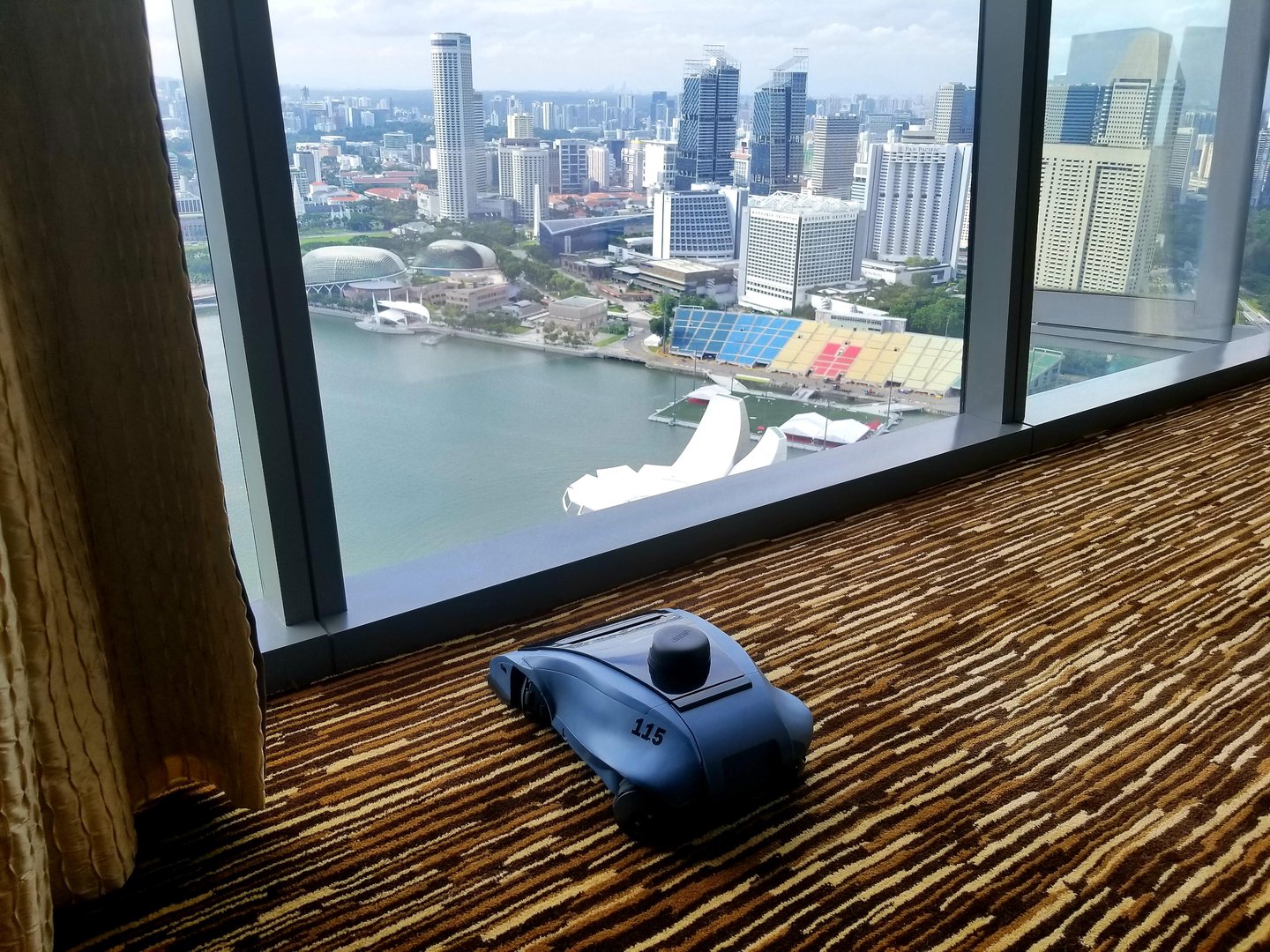Why a College Student Developed a Hotel Housekeeping Robot
Recently, Maidbot announced its partnership with RB (Reckitt Benckiser), a health, hygiene, and nutrition company and the makers of many world-renowned brands including Lysol, Dettol, Harpic, Finish and Mucinex. Maidbot is partnering with RB to drive greater confidence in the hospitality and commercial real estate industries by innovating cleaner, more hygienic experiences for guests and employees alike. The two companies will collaborate to develop innovative commercial cleaning solutions which will drive the commercial robotics revolution and transform the commercial services industry.
So, what is Maidbot?
Micah Estis Green founded the company when he was a student working as a room attendant at The Statler Hotel on Cornell University’s campus. While cleaning rooms, he realized housekeeping is a hotel’s highest variable cost and that room attendants have the highest rate of injury.
“Vacuuming is the second highest cause of injuries, according to the NIH, for room attendants and contributes to back, wrist, and shoulder injuries derived from repetitive motion activities,” Green notes.
Green also saw similar issues in other types of commercial real estate with demanding cleaning operations. So Green created Rosie the robot (Yes – named after The Jestons’ maidbot!) to vacuum commercial floors so that humans could focus on more meaningful and enjoyable work.
“Rosie does not replace associates; Rosie supports associates by taking the physical load of vacuuming off their SOPs, reducing the time it takes to clean, and providing a consistent clean every time,” Green explains. “By using Rosie, room attendants have told us they feel better at the end of the day and have less pain in parts of their body. Our goal is to also have Rosie help attract and retain staff over time.”
However, as hotels and other companies began to use Rosie – something interesting happened. As the team designed the hardware and navigation software to optimize Rosie’s cleaning function for varied environments, they uncovered demand for predictive data that could provide significant added value to management.
Covering every square foot of these commercial spaces nearly every day, Rosie can track environmental data from temperature and humidity to Wi-Fi signal strength. Rosie evolved from being a commercial floor cleaning robot to an indoor mobile data platform - mapping indoor data over physical space. Rosie’s cleaning skills combined with her data tracking has made her a valuable asset to many hotel properties.
“Depending on the property and operations, Rosie provides a plethora of value,” Green says. “Operators have seen an increase in efficiencies in room and public space cleaning, so they have derived value in changing operations accordingly. Additionally, the robot captures actionable data that can help mitigate lost revenue from guest complaints - ie. poor Wi-Fi in a room will lead to a guest complaint which could lead to a discounted rate - which has an impact on the top line for operators.”
Rosie has also become an added value during the recent pandemic.
“COVID has had an unprecedented impact on the service industry and operations have changed drastically,” Green adds. “Given that cleaning times have increased because of updated cleaning protocols, Rosie can help alleviate the strain that increased an increased task list may cause. Rosie can also tackle public spaces -- like lobbies and corridors -- to clean consistently and support house aids so they can tackle higher touch and guest-focused tasks. The industry is facing many challenges with COVID, and we believe robotics will be a part of the suite of solutions to help hotels survive and prosper in these turbulent times.”


